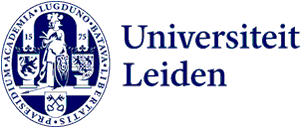11 search results for “fake news disinformation” in the Staff website
-
 Anna Smulders
Anna SmuldersFaculteit Rechtsgeleerdheid
a.m.smulders@law.leidenuniv.nl | +31 71 527 2727
-
 Indira Huliselan
Indira HuliselanFaculty of Humanities
i.c.huliselan@hum.leidenuniv.nl | +31 71 527 1167
-
Bart Custers discusses fake news on facial recognition at Jumbo
Misleading social media posts are falsely claiming that the Dutch supermarket chain Jumbo uses facial recognition at self-service checkouts. Jumbo denies this, although it has launched trials with AI cameras to combat shoplifting without using facial recognition.
-
Newscheckers wins European Citizen Award
The fact-checking initiative Nieuwscheckers has won the Dutch round of the European Citizens Award. This prize is awarded annually to projects and initiatives that deliver an exceptional performance within the EU.
-
Online curiosity explored: 'We are more likely to accept information uncritically if it answers a question'
What do people wonder about on social media? University lecturer Matthijs Westera is the recipient of an NWO grant to investigate what people are curious about online.
-
Letters of Johan de Witt give a glimpse behind the scenes at the Disaster Year 1672
The government, the people and the country were in desperate straits. This about sums up the state of affairs in the Disaster Year of 1672. It was 350 years ago, and to mark the occasion PhD candidate Roosje Peeters collaborated on a series of letters to and from a key political figure Johan de Witt,…
-
Seventeenth-century Dutch were masters in fake news
LUC historian Jacqueline Hylkema unmasks forgeries from the early modern Dutch Republic in the research project "Mapping the Fake Republic".
-
Bart Custers in Trouw on ChatGPT and cybercrime
The EU proposal for a regulatory framework on artificial intelligence will not prevent the dangers of cybercrime or the spreading of fake news using ChatGPT. Cyber criminals can use the new technology to write harmful software, phishing mails and fake news.
-
Bart Custers on tech companies involved in criminal activities
Governments are increasingly cracking down on tech companies like X, Telegram and Clearview that flout the law, with a fine, ban or criminal prosecution. In practice, however, this has little effect. A tougher stance is needed, argues Bart Custers, Professor of Law and Data Science at eLaw – Center…
-
Misleading bar and pie charts
People can be easily mislead with graphs. But they don’t necessarily stay misled, the research shows.
-
The Gulag Legacy - Memory of Stalinism in Today's Russia
Lecture
